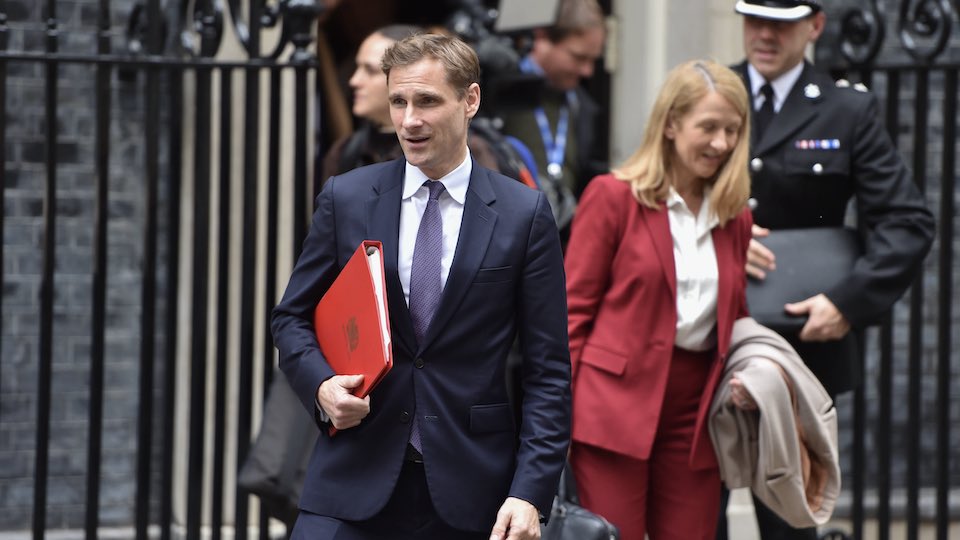Great Britain: Police to use facial recognition when searching for shoplifters

The British police are to increase the use of facial recognition technology in the future to also search for shoplifting offenders. This is in part to be financed by retail groups. However, criticism has been made about these plans.
The UK Home Office officially presented a cooperation called “Project Pegasus” this past week. Among other things, it is planned for police to prioritise patrols to retail shops when violence is involved with staff in shoplifting cases or if offenders have been detained by security guards. Additionally, police are also to patrol areas that are seen as hot spots for theft. Furthermore, a new police unit is to be established that will be located in the department for organised crime gangs.
“Project Pegasus” is a jointly financed partnership between the Home Office and 13 retailers, including Primark, Marks & Spencer and the supermarket chain Co-op. In total, all parties involved have agreed on £840,000 for funding – according to BBC, the retailers alone have paid about £800,000.
However, clear criticism is now being voiced because the police are also to deploy facial recognition technology for investigations of shoplifting. As the Home Office communicated, retailers are to deliver CCTV recordings to the authorities. Afterwards, the images are to be compared using the help of facial recognition with the Police National Database in order to identify offenders. According to a report published in May by the organisation, Big Brother Watch, there are more than 16 million photos in this database. These photos are uploaded by individual departments, for example, when people are detained and processed for identification purposes.
Protests from human rights organisations
As the Guardian reported on Saturday, 14 human rights organisations – including Amnesty International, Liberty and Big Brother Watch – have now called on the retailers to withdraw from from the project. They warn that existing inequalities could become amplified through the use of facial recognition.
Among other things, the organisations criticise that facial recognition software often incorrectly recognises people with dark skin. This could lead to already marginalised groups being more likely to be stopped and checked by the police or to be monitored by retail employees in shops while they shop.
In the USA, for example, several cases were made public where Black people were wrongly accused of crimes after facial recognition systems had identified them incorrectly.
Additionally, the British organisations also call on the government to stop the project and fight the cause of shoplifting instead. From their perspective, the primary causes are poverty and the increasing cost of living. “The reality is that we cannot police and surveil our way out of a cost of living crisis, low wages, an inadequate social security system, soaring housing costs and rocketing food prices,” explained the NGOs according to the Guardian report.
As reported by the BBC, the police in England and Wales registered 365,164 cases of shoplifting between January and June 2023 – this is an increase of 25 percent compared to the previous year period. However, the numbers are still below the level before the coronavirus pandemic. Nevertheless, some retailers speak of a “shoplifting epidemic.” According to reports, there has been repeated criticism of the lack of a police presence in this context. Activists counter, however, that the current rise of theft can be attributed to the rising cost of living – people are stealing out of desperation.
NGOs criticise the lack of a legal basis
Emmanuelle Andrews of the human rights organisation, Liberty, explained to the Guardian that the use of facial recognition technology in supermarkets and other stores threatens the rights of individuals – and have “no place on our streets or in our shops.”
Additionally, according to the Guardian, activists criticise that there is no legal basis for the use of facial recognition by the police. In South Wales, a court ruled in 2020 that the use of the technology by the police there goes against the right to privacy and was, therefore, unlawful.
By contrast, the British Policing Minister, Chris Philp, wants to expand the use of the technology. As the Home Office communicated on Sunday, the police should double the amount of retroactive facial recognition searches by May 2024. Live facial recognition is also to be implemented on a larger scale.
Madeleine Stone from the NGO Big Brother Watch described live facial recognition to the Guardian as a “dystopian mass surveillance tool.” The organisation has criticised the use of the technology for a long time. (js)